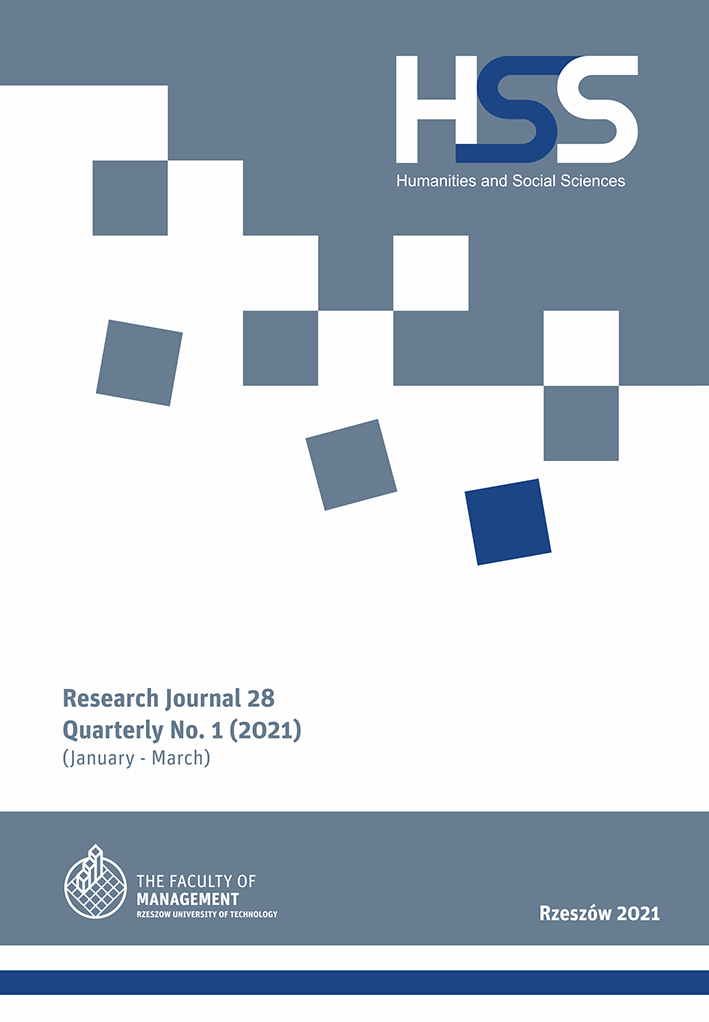Abstract
This article provides an understanding of the nature of the relationship between Algerian family values and youth entrepreneurship and management in the context of economic and social evolution and transitions. It is important to determine the roles played by Algerian families in the success of the projects of their members (entrepreneurs). The objective of this study is to understand the reasons why people devote time, energy, and money to entrepreneurship and the prevailing logics in their managerial and organizational practices. This is a question of grasping the references and scales of values, as well as the religious, moral, and social norms that entrepreneurs follow and that motivate them to create or take over and manage their enterprise.
References
Addi, L. (1999). Les mutations de la société algérienne. Paris, La Découverte.
Bachir, M. (2007). Culture and management in Algeria: research on the interaction between traditional and industrial culture. Editions OPU, Algeria (Book in Arabic).
Badraoui, S., Pouwisawè, K. V. (2014). Culture d’entreprenariat En Afrique, Une Autre Affaire Sociétale: Une Approche Exploratoire De La Problématique [In:] Bunăiașu, C. M., Negrea, X., Țenescu, A. (COORDINATORS), Creativity, Imaginary, Language, Volumul cuprinde lucrările prezentate în cadrul CIL 2014: The International Conference of Humanities and Social Sciences – Creativity, Imaginary, Language, Craiova, 16-17 May 2014, Editura SITECH Craiova.
Badraoui, S., Lalaouna, D., Belarouci, S. (2014). Culture et management, le model d’Hofstede en question. “Cross-Culturelle Management Journal”, Vol. XVI, Issue 2 (6).
Bava, S, (2002). De la baraka aux affaires. La captation de ressources religieuses comme initiatrices de nouvelles routes migratoires. “Ville-École-Intégration-Enjeux” No. 131.
Benali. R, (2005). Education familiale en Algérie entre tradition et modernité. “Insaniyat”, CRASC, Oran, Algérie, No. 29/30.
Boukhobza, M. (1989). Rupture et transformations sociales en Algérie. OPU, Alger. T. 02, 1989.
Bourdieu, P. (1958). Sociologie de l’Algérie. Paris: PUF.
Boutefnouchet, M. (1980). Système social et changement social en Algérie. Alger: OPU.
Ellis, S., Fauré, Y. A. (Sous-direction) (1995). Entreprises et entrepreneurs africains. Editions Karthala et Orstom.
Geertz, C. (1992). Observer l’islam. Changements religieux au Maroc et en Indonésie. Paris: Editions la Découverte.
Gillet, A., Madoui, M. (2004). Les entrepreneurs algériens: un groupe hétérogène entre logique familiale et logique économique. Cahier du Griot.
Gillet, A. (2002). Les entrepreneurs algériens créateurs de petites entreprises: un groupe hétérogène entre logiques sociales, domestiques et logique économique capitaliste. CNAM-GRIOT, Documents de travail. France.
Hampden-Turner, C. M., Trompenaars, F. (2008). Building cross-cultural competence: How to create wealth from conflicting values. Yale University Press. HFA, definition of halal, Halal Food Authority (HFA). Access on the internet: https://www.halalfoodauthority.com/definition-of-halal.
Himrane, M., Hassani, H. (2017). Une analyse multidimensionnelle de l’entrepreneuriat féminin en Algérie. “Algerian Review of Economic Development” (ARED), 6 (06).
Hofstede, G. Hofstede, G. J, Minkov, M., (2010). Cultures and Organizations: Software of the Mind. McGraw-Hill Professional. Édition: 3.
Hofstede, G. (2001). Culture’s consequences, comparing values. Behaviors, Institutions, and organisations Across nations, 2nd éd, Sage publications, Londres.
Hofstede, G. (1994). Defining culture and its four dimensions. European Forum for Management Development: Focus: “Cross-cultural Management” No. 94 (1).
Hofstede, G., Bollinger, D. (1987). Les différences culturelles dans le management: Cultural differences in management. Les Editions d’organisation.
Jaelani, A. S. (2016). Zakat Accounting: Metaphor and accounting treatment for business organization. Published in: The 4th International Conference on Islamic Economics and Business (ICONIES) 2016, "Building the Society Awareness and Culture In Strengthening Islamic Economics and Business" October 25th – 27th, 2016), Maulana Malik Ibrahim Malang, Indonesia.
Marchesnay, M., Kammoun, S. C., Karray, H. E. (2006). Y a-t-il un entrepreneuriat méditerranéen? ˮRevue française de gestionˮ No. 7.
Miskam, S. et al. (2015). An Analysis Of The Definition Of Halal: Shari’ah Vs Statutes [In:] World Academic and Research Congress.
Madoui, M. (2012). De l’économie planifiée à l’économie de marché. SociologieS [En ligne], Dossiers, Professions et métiers autour de la Méditerranée, mis en ligne le 09 mai 2012. Access on the internet: http://journals.openedition.org/sociologies/4049
Musette, M. S. (2013). Le marché du travail en Algérie: une vision nouvelle?. ˮJournées de l’entreprise algérienne: Emploi, Formation et Employabilitéˮ, CREAD, Alger.
Oussedik, F. (2012). La famille algérienne subit des changements profonds. El Watan, 13 juin 2012. Access on the internet: https://algeria-watch.org/?p=13089
Saporta, B. et Kombou, L. (2000). L’entrepreneuriat africain, mythe ou réalité dans Verstraete, T., Histoire d’entreprendre. Les réalités de l’entrepreneuriat. Edition EMS.
Torres. O. (2000). L'entrepreneuriat face à la globalisation dans Histoire d'entreprendre (sous la dir. de T. VERSTRAETE), Editions ESM, juillet 2000.
Tounes, A., Assala, Kh. (2007). Influences culturelles sur des comportements managériaux d’entrepreneurs Algériens. 5éme congrès international de l’académie de l’entrepreneuriat. Sherbrooke-Canada.


